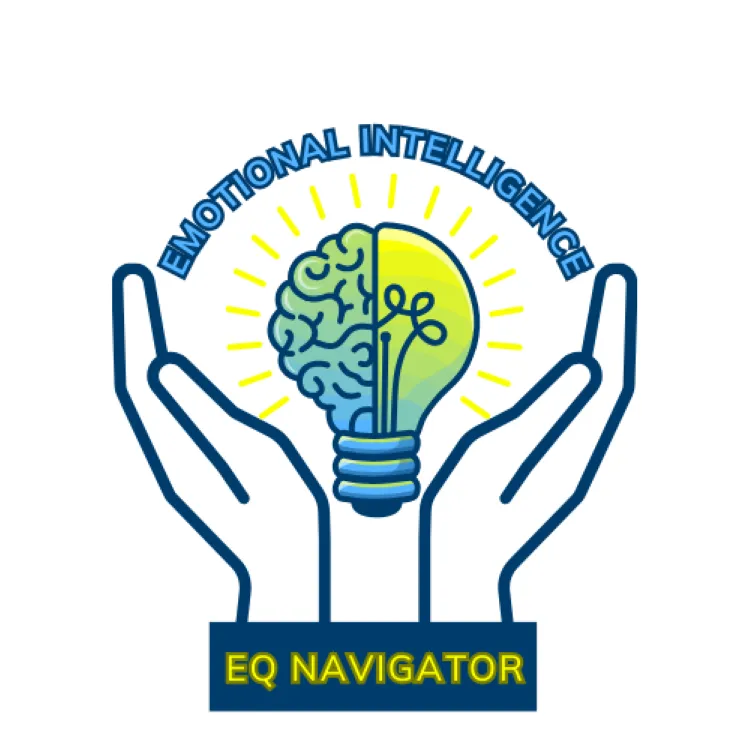
WHAT IS EMOTIONAL INTELLIGENCE
What does emotional intelligence mean?
Emotion psychology defines emotional intelligence as recognizing and understanding your emotions and those of others. By using emotional understanding, you can make decisions, solve problems and communicate more effectively. There are four levels of EQ, which include:

PERCEPTION OF EMOTIONS.

REASONING WITH EMOTIONS.

UNDERSTANDING EMOTIONS.

MANAGEMENT OF EMOTIONS.
People used to consider intelligence and emotions as opposites. However, the intersection of the two has been a major area of interest. The way that thinking and emotions interact influences how people behave and make decisions. When professionals are unable to understand and handle emotions, it creates problems for businesses. You might be familiar with the longstanding advice that urges professionals to leave emotions at the door when they arrive at work, but that can dismiss the inevitability and importance of human emotions.
What is emotional intelligence in the workplace?
Several components of emotional intelligence are key for your team to help improve workplace performance:
Social skills
Social skills refer to the ability to work with others and overlap with communication and interpersonal skills. By understanding and considering the emotions of others through active listening and both verbal and nonverbal communication, employees are better prepared to respond appropriately. Social skills are necessary to guide people effectively in a specific direction and influence them in any particular way. They also help build a sense of rapport and trust among employees and managers, as well as an overall healthier workplace culture.
Self-awareness
As one of the primary components of emoti29al intelligence, self-awareness refers to the ability to identify aspects of yourself, such as emotions, strengths, weaknesses and values. It also allows you to perceive the impressions or effects that you have on others in the workplace. For instance, you may notice that you’re prone to frustration or irritation when working with specific tasks. Being aware of these feelings is the first step to understanding and addressing them, allowing you to improve work performance and be more receptive to constructive criticism/.
Empathy
Being empathetic is not only seeing how others feel, but understanding their emotions and perspective. Empathy is a type of interpersonal skill that implies insight into the emotional state of others and the ability to respond appropriately. With empathy, you can better perceive the emotional dynamics between employees and across the workplace, allowing you to understand and navigate the resulting interactions and behaviors.
This is especially important when resolving conflicts or disagreements, preventing major workplace issues and improving overall workplace culture. Empathy has specific applications in business, such as sensitivity to cross-cultural differences, retaining top talent, hiring outstanding employees and helping people develop professionally.
Self-management
Individuals who practice self-management are able to cope with negative moods and ward off impulsive reactions. This means first recognizing and processing your emotions, and then responding to those who surround you. If you have a strong EQ, you can successfully manage feelings and match them with your passions. For example, in business, when things don’t turn out as you would like or your team makes a mistake, the urge might be to scold the team because of the failure. However, with emotional intelligence, you can see the error from an objective stance and look at all the causes. You can then provide feedback to your team and work toward alternative solutions with them.
Motivation
Motivated individuals tend to pursue their goals and perform their tasks for intrinsic rather than external rewards. That is, a motivated person finds a rewarding degree of purpose and meaning in their work, is passionate about what they do and enjoys the process of ongoing personal development. These individuals are often eager to take on new challenges and goals. A motivated, emotionally intelligent individual works with passion and portrays an optimistic perspective to management, creating a motivating workplace environment.
Why is emotional intelligence important?
Each day, you must make decisions, and most of them are influenced in some way by your emotions. If you have a high EQ, you can understand the emotions of others, manage and convey your own, form healthy relationships and solve problems efficiently — even with the weight of deadlines and other pressures. Employers with high EQ tend to solve problems and make decisions more effectively.
Consequences of a low EQ.

Less emotional accountability.

Ineffective communication between employees and management.

Reduced productivity.

Struggles with constructive feedback and employee development.

Poor team dynamics.

Inefficient decision-making.

Poor problem-solving.

Increased employee turnover and hiring costs.
In workplaces with a low EQ, people struggle to work together as a team and usually avoid taking responsibility for their mistakes. When communicating, they may be either passive or aggressive, but not assertive. In short, low workplace EQ can have significant negative effects on both business productivity and workplace culture.
Benefits of emotional intelligence at work
Emotional intelligence at the workplace begins with the individual. The first step is to become self-aware. It involves recognizing various aspects of yourself, like your feelings and emotions. Once you’ve taken stock of your feelings, then you want to regulate what you’re feeling. Outstanding self-management means you can adapt effectively to situations as they change. You don’t hold anything in or bottle up your emotions, but at the same time, you’re able to control impulsive behaviors.
Having a high EQ in the workplace allows you to communicate feelings in a constructive way. Since social skills are a critical component of high EQ, the overall company culture improves as individual team members focus on developing emotional intelligence. With excellent social skills, teams work together with more solidarity and better communication. The benefit of empathy is not solely in perceiving the way others feel, but it’s also a way to recognize your reactions to expressions of emotion.
Employee-management dynamics are exposed by emotional insight, and empathy helps you find out the effects these power dynamics have on working relationships. Emotional intelligence is also essential to conflict management in the workplace. The benefit of emotional intelligence in situations of conflict is that you can often establish a middle ground in disagreements. By paying attention to how others respond, you can try to help people feel heard, which in turn will help them be more willing to compromise.
FAQs about emotional intelligence in the workplace.
What are common qualities of an emotionally intelligent person?
People with a high EQ possess many positive qualities. Common characteristics include:
• Adaptability
• Positive Outlook
• Goal-Oriented
• Teamwork Skills
• Mentorship Abilities
• Work-life Balance
• Communication Skills
Why is emotional intelligence important in leadership?
Workplace leadership responsibilities extend past setting goals and delegating tasks. They’re also responsible for workplace culture. When leaders have a strong EQ, they improve workplace culture through inspirational leadership, conflict management and effective collaboration and communication with others.

